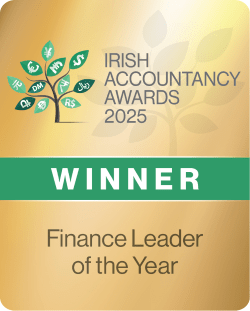If you are adding new employees to your business, you may have come across questions about your Benefit in Kind (BIK) policies. What is Benefit in Kind? Benefit in Kind (also known as fringe benefits) are non-monetary/non-cash benefits that an employer offers to employees as a way of both attracting new talent and retaining existing talent.
The idea behind it is that If you are offered 2 jobs and one of them includes a gym membership as an employee benefit, you will be more inclined to take that position. Obviously there are tax implications to BIK otherwise all employers would replace salaries with fringe benefits as much as possible to avoid paying tax. We will take a look at those implications a bit later.

What benefits can you offer your employees?
Although a Benefit in Kind is non-monetary, it is something that can be assigned a monetary value. Types of Benefits In Kind can include:
Company car
If you provide a vehicle for an employee to use in their personal capacity.
Health insurance
If you make payments to an insurer on your employees behalf
Pension contributions
If you make contributions to a pension scheme on your employees behalf
Club memberships
Gym or Sports facilities memberships that you contribute towards
Education
Any courses or additional tuition you pay for your employees to attend
Accommodation
If you provide accommodation or subsidized accommodation for your employees
Meals
Employee meals whether provided in the form of a canteen or as vouchers are deemed a benefit in kind.
Stock options
If you issue shares to employees under a share option scheme.
Mobile phone
Company phones that are used for business communications.
Low interest loans
Preferential loans made to employees as discounted interest rates
Bus or rail tickets
Annual or monthly passes that allow employees to commute to the office
Staff discounts
Discounts on your business products or services
Work from home allowances
Any home office costs that your business covers

Tax implications of a Benefit in Kind – Ireland
Because a benefit in kind in Ireland is defined as a non-monetary item that still has a monetary value, there are tax implications to BIK. This will often take the form of the employee paying PAYE, USC and PRSI. Each benefit differs as to how it is treated by the Revenue Commissioners.
It is recommended that you work with an accounting firm like Around Finance, who are tax professionals, to set up your employee benefit scheme. That way you’ll ensure that it is set up correctly and is compliant with tax laws. Most benefits are added to the employees salary and taxed accordingly.
As a quick example, we’ll look at the most common benefits:
Company Car
New rules came into effect from 1 January 2023. The employee will be liable for PAYE, USC and PRSI on the monetary value of the personal use of the car. Beyond that the business in kind (BIK) charge is based on a number of factors including whether the car is electric or not, its CO2 emissions and miles driven for business use.
For example; on a diesel vehicle with less than 24,000 business kilometers annually, the taxable BIK is 30% of the OMV (Original Market Value). This means that in most instances it doesn’t make sense for the business to purchase a business vehicle whereby there is significant personal usage and limited business mileage.
Health Insurance
Your employees will be liable for tax on a health insurance BIK offer. Usually the tax, PRSI and USC due is automatically deducted from the employees salary and paid across by the employer.
Pension Contributions
Employees are given income tax relief on their contributions to an approved pension plan. They are still liable for USC and PRSI. Again, usually the employer deducts the contributions directly from their pay. Employer contributions are exempt.
Tax Exempt Benefit in Kind
There are a few employee benefits that are not taxable. Tax exempt Benefit in Kind options include Bikes under the Cycle to Work Scheme, Travel Passes, some types of employee share or profit sharing schemes, and canteen facilities.
Hopefully we have given you some ideas for a Benefit in Kind policy for your business. How you employ and structure employee remuneration is an important part of running your small business.
Contact us for more information or advice before implementing your BIK policy.
FAQs
How do you work out benefit in-kind?
Benefit in-kind applies to a number of different fringe benefits which all have their own calculations. Book a discovery call with us to find out more
How is benefit in-kind taxed in Ireland?
BIK is usually taxed on the monetary value of the benefit and is treated as employee income. There are exceptions to this rule so it is worth discussing the tax implications with a professional.
Are benefits in-kind worth it?
Benefits in-kind are worth implementing from both the employer’s side (to attract better employees) and from the employees side for the actual benefits. There are also potential tax savings for both parties too.
Can I claim tax back on benefit in kind?
If you have been given benefits in kind you may be able to claim tax back on some of them. For example if your employer paid medical insurance premiums on your behalf.
How does BIK show on pay slip?
Benefits in Kind (BIK) are usually shown added to the gross salary to calculate income tax. They are then deducted from the net pay as the employer usually pays on the employees behalf.
How is BIK calculated on a company car in Ireland?
Benefit In Kind (BIK) on a company car is a complicated calculation and dependent on the mileage you drive for work, your CO2 emissions and whether the vehicle is electric or not. Contact us for expert tax advice.












